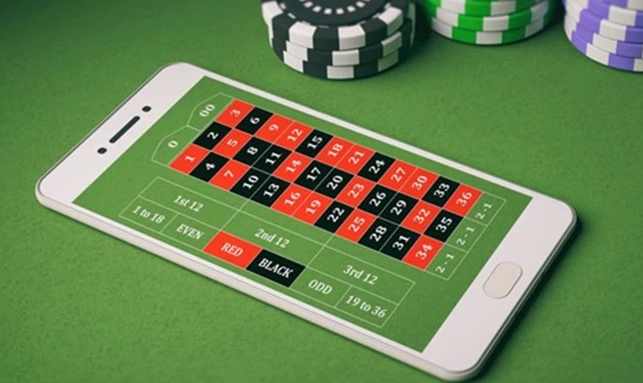
IN its rabid pursuit of every penny, whether bled off from the capital coffers of state financial institutions, or from the pre-need reserves of a health fund, or the flood control budget of the Department of Public Works and Highways, or even the savings of families and children, a new initiative that creates a virtual casino in every home is now a major undertaking of the Philippine government.
Despite the burning debate on the ills of gambling three concerns had roused the public’s concern last July when Philippine President Ferdinand R. Marcos Jr. failed to address its viral spread and the moral and social costs gambling inflicted across the archipelago.
One was the fact that in 2024, the abolition of Philippine Online Gaming Operations or POGO was a not simply among the central initiatives in his 2024 State of the Nation Address but in as short as a year, it was a promise fulfilled such that the public gifted him with sterling accolades, lifting his approval ratings, both timely where these were threatened by imminent lame-duckness and clear and present threats from within the Executive Branch.
The second concern has to do with credibility, fortitude and what seemed as Marcos’s incredibly profound declaration on the social and cultural ills that gambling not only carries but worsens by its mere existence.
Marcos declared then that POGO “operations have ventured into illicit areas furthest from gaming, such as financial scamming, money laundering, prostitution, human trafficking, kidnapping, brutal torture, even murder.”
Marcos’ approval ratings had gotten a boost when, despite the ballyhooed POGO revenues claimed during the previous Duterte administration Marcos moved to ban these, not simply because of the direct negative impact of an addictive social aberrant but its collateral criminality,
While POGOs reigned, in total, legitimate gambling revenue of 372.33 billion pesos ($19.9 billion) was earned in 2024. Of this, 154.51 billion pesos ($8.28 billion) was from online gambling platforms such as e-games and e-bingo. Those numbers are important. Since dismantling the POGO system, ironically gambling under the Marcos administration expanded and had made aggressive beachheads online where now every home with a computer is a virtual casino accessible by the gullible of any age, including app-savvy albeit financially vulnerable children.
The third is the fact that from July all the way to August, gambling has not simply hogged the headlines but nearly every waking hour of typically lethargic lawmaking from both sides of the political aisle has been aflame with incendiary debate, discourses and declarations on the ills of gambling.
The grandstand has been basking in the klieg lights. Politicians pander to the current social media content, whether that is as earthshaking as the trimming of a senator’s mustache covered by one of the major media networks, or the purposeful and persistent plunder of the flood control budget by politically connected public works contractors.
Despite the cacophony created by the bipartisan opposition to gambling, the administration is hellbent on pursuing it both as a major source of revenues, however ignorant of social costs, and as opium whose alchemy distracts from the real issues of an economy already based on glitzy optics and little else.
Questionable, albeit prolific revenues based on what has now turned into an addictive glistening vice that blindsides deeply damaging loss of morals has always justified state-sponsored gambling. It is the classic prostitute’s proposition. Yes, it is immoral, but it provides pecuniary sustenance and cash flows. Beyond being a form of entertainment and a pastime, it is livelihood.
And now, as government itself has warped it from POGO into PIGO (Philippine Inland Gaming Operators), while retaining its online gambling DNA, the mutation is a virtual casino in every home with the ability to transform homes and households into revenue generating gambling dens.
PIGO builds from and expands the gambling market where the previous POGO was focused on foreign gamblers, PIGO targets both foreign and domestic markets.
Immorality recognizes no boundaries. In that it is sociopathic. PIGO offers the same gambling platforms as did POGO, but makes these more accessible and attractive.
And because it is virtually an enhanced and mutated POGO with a broader base, at least one legislator noted that its prospective online bets can be in the range between 600 billion pesos ($10.57 billion) to as much as 1 trillion pesos ($17.6 billion) a year. There we see the prostitute’s proposition in all its glitzy glory.
In 2024, as he addressed the bureaucracy, Marcos said “always be vigilant, principled and think of the nation.” We pray that he remembers those words and understands them.
Dean de la Paz is a former investment banker and a managing director of a New Jersey-based power company operating in the Philippines. He is the chairman of the board of a renewable energy company and is a retired Business Policy, Finance and Mathematics professor.










